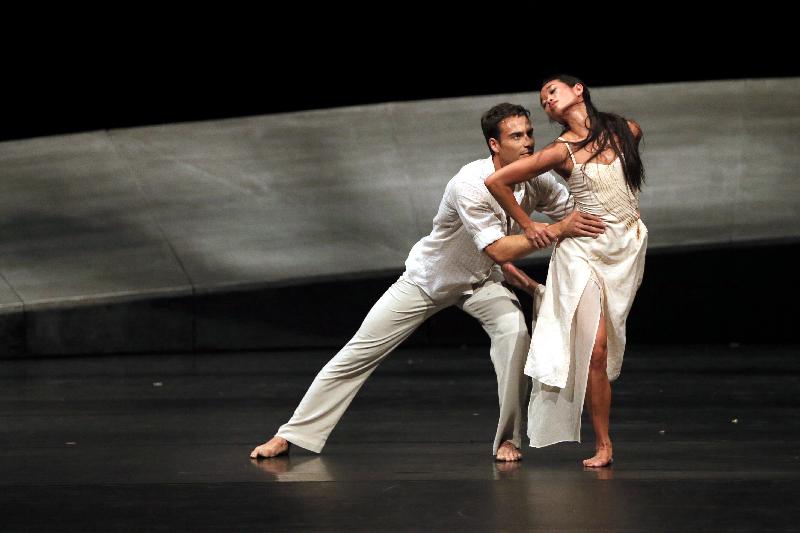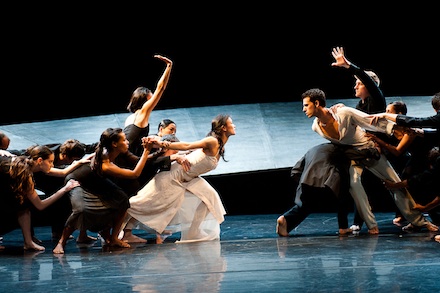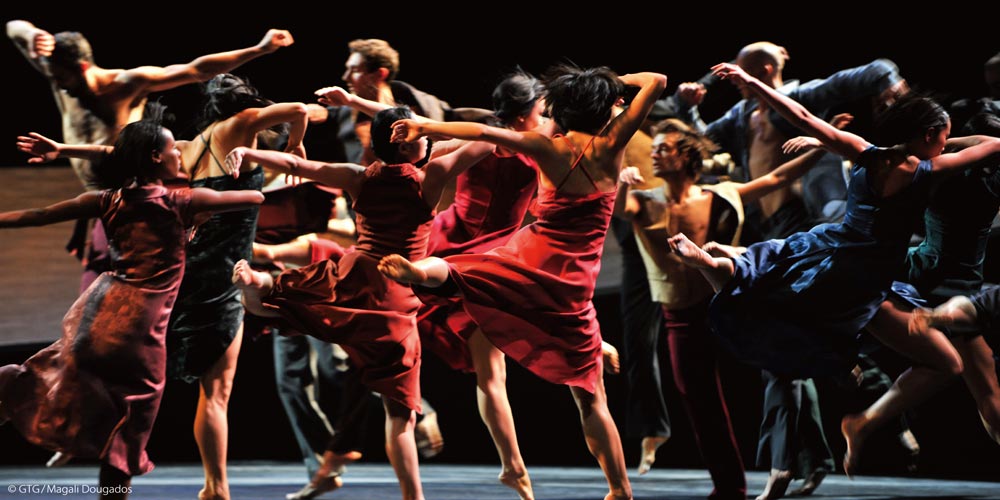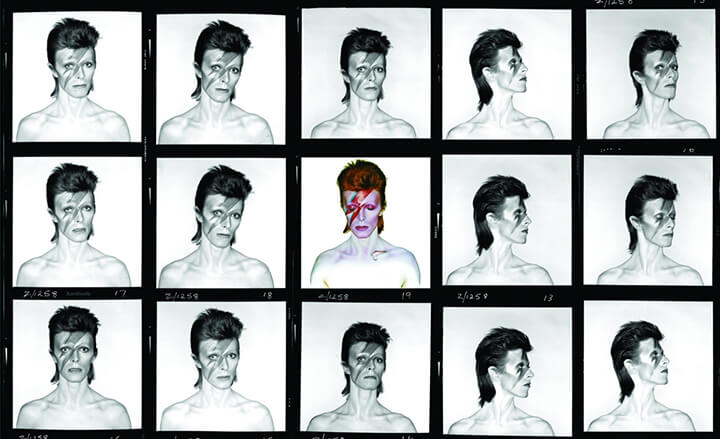Director, Michael Cove, and choreographer, Joëlle Bouvier, have achieved the unachievable with their production of ‘Romeo and Juliet’, performed this week only by the Geneva Ballet at the Gran Teatre del Liceu. Together, they have taken a play steeped in history, legacy and tradition and have created something refreshing and unique.

The plot has been boiled down to its very bare bones, focussing exclusively on the relationship between the ill-fated teenage lovers. Shakespeare’s words have been displaced by Bouvier’s complex and at times contemporary choreography. The only dialogue in the production is the whispers of the play’s famous opening lines: ‘Two households both alike in dignity’. This preface works well in grounding the audience within ‘Romeo and Juliet’ by alluding to the story with one single line; jogging our memory and focussing our attention.
This pared down interpretation of ‘Romeo and Juliet’ works by assuming that each audience member has a fairly detailed understanding of the play. While in reality this might be a fair presumption, due to Shakespeare’s international acclaim, it does pose a risk of alienating some audience members. However, this presumption works well. Not only is it particularly rewarding to those with a prior appreciation of the play, but clear allusions made to the most loved scenes are enjoyed and recognised by all. The balcony scene is particularly special, where the balcony itself is formed by the moving bodies of the ballerinas, physically supporting Juliet as she laments to Romeo below.

By using the play’s international esteem to his advantage, Cove has condensed ‘Romeo and Juliet’ into 70 concise minutes. Although in the world of ballet this might seem like little bang for your buck, the pithiness of the production works in a number of ways. Perhaps most obviously, the audience members are aware that time is precious. Personally, I was unable to tear my eyes away from the stage for a single moment, mesmerised by its energy and movement. On another level, the brevity of the performance resonates with Shakespeare’s own economy of language. Just as no word nor line in ‘Romeo and Juliet’ are irrelevant, every step, leap and plie seem to contribute something to the overall effect of the ballet. Cove has chosen to focus exclusively on the central nub of the story: a blooming teenage love cut short by familial disapproval. One could argue that this production of ‘Romeo and Juliet’ therefore excludes a vast array of the play’s dimensions; neglecting characters, sub-plots and motifs. However, the director’s sharp focus is part of the reason why the ballet is as refreshing and unique as it is. Cove’s cutting feels deliberate and insightful; not ignorant and clumsy.
As someone who has seen little ballet, I was completely overwhelmed by the athleticism of the 22 ballerinas, most notably Nahuel Alejandro Vega (Romeo) and Sara Shigenari (Juliet). The strength and ease with which they are able to control and contort their bodies is remarkable; making you feel particularly guilty when your arms hurt after five minutes of clapping. The skill with which Cove and Bouvier have transformed Shakespeare’s spoken word into dance is a treat for the eyes, ears and soul. Prokófiev’s famous score, performed by the Orquestra Simfònica of the Gran Teatre del Liceu, drives the production with strength and command from within. I am no expert, but I believe the Geneva Ballet’s ‘Romeo and Juliet’ is an extraordinarily simple yet immensely evolved piece of work, that blends love and violence in a way that resonates long after the curtain falls and the 70 minutes have concluded.

 “Lovers don’t finally meet somewhere. They’re in each other all along.” Rumi
“Lovers don’t finally meet somewhere. They’re in each other all along.” Rumi
I am an English Literature student from Edinburgh University, completing an ERASMUS year in Barcelona. Whether I am at home in London, at university in Scotland or out here in Spain, I enjoy trying new things and seeing what I can write about them. I love reading, travelling, photography, bread sauce and just about anything with a tail.




